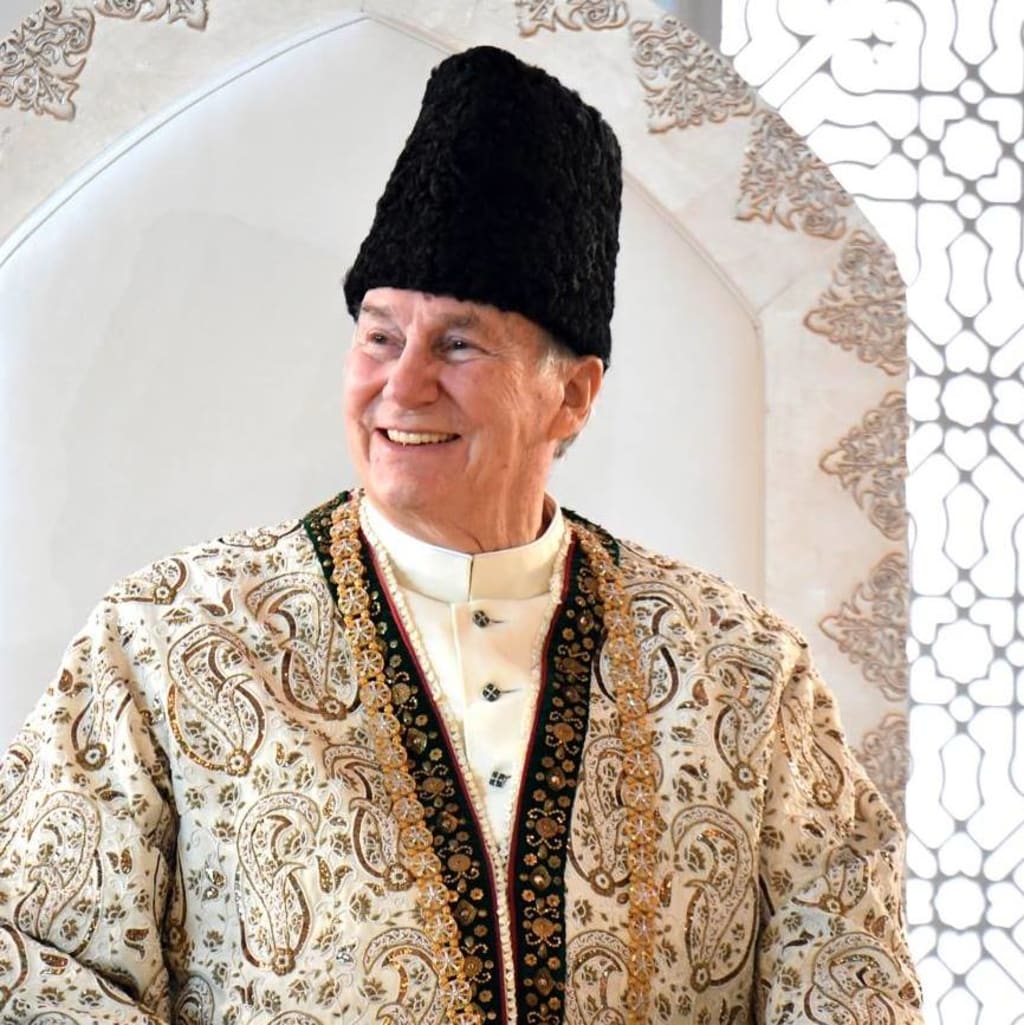Who is Prince Karim Aga khan?
Spiritual leader of Shia Imami Ismailli Muslims

<Prince Shah Karim Al Hussaini Aga Khan IV, commonly known as Aga Khan, is a prominent and influential figure in the realms of religion, culture, and philanthropy. As the 49th hereditary Imam of the Ismaili branch of Shia Islam, he plays a vital role in the spiritual guidance of his community. Born on December 13, 1936, in Geneva, Switzerland, Aga Khan has dedicated his life to serving his followers and the broader global community through various institutions and initiatives.
The Ismaili Imamat:
The Aga Khan's significance primarily derives from his role as the spiritual leader of the Ismaili Muslims. Ismailism is a branch of Shia Islam with a distinct theological and historical tradition. The Ismailis recognize the Aga Khan as their Imam, a term meaning "leader" or "guide." He is believed to be the spiritual authority and a direct descendant of the Prophet Muhammad through his cousin and son-in-law, Ali, and his daughter, Fatimah.
Aga Khan's hereditary role as the Imam entails providing religious guidance, interpreting the faith's teachings, and fostering a sense of unity and community among his followers. His leadership is not limited to religious matters; it also extends to broader areas of development and humanitarian work.
Philanthropy and Development:
One of the most remarkable aspects of Aga Khan's leadership is his dedication to improving the quality of life for people around the world. He established the Aga Khan Development Network (AKDN), a group of institutions and agencies that work in various fields to address pressing global challenges. The AKDN's mission is to promote social, economic, and cultural development, particularly in regions facing poverty, conflict, and underdevelopment.
The AKDN's efforts span diverse areas, including education, healthcare, cultural preservation, economic development, and poverty alleviation. These initiatives reach people in numerous countries, benefiting communities regardless of their race, religion, or nationality. Aga Khan's approach to development emphasizes a holistic view of human progress, recognizing that improvements in multiple dimensions of life are interconnected.
Education:
Education has been a central focus of the Aga Khan's efforts to uplift communities. The AKDN has established a network of schools and universities in various countries, offering high-quality education to students from diverse backgrounds. Notable examples include the Aga Khan University, which encompasses multiple campuses, hospitals, and institutes dedicated to healthcare, education, and research.
Aga Khan's emphasis on education extends beyond academic institutions. He recognizes the importance of lifelong learning and the preservation of cultural heritage. The Aga Khan Trust for Culture plays a crucial role in safeguarding and revitalizing historic sites, monuments, and cultural traditions, contributing to the enrichment of society.
Healthcare:
The Aga Khan's philanthropic work in healthcare is equally significant. The AKDN operates a network of healthcare facilities and programs that provide medical services, training, and research. These efforts aim to improve access to quality healthcare, particularly in underserved regions where healthcare infrastructure is lacking.
Aga Khan's commitment to healthcare extends to both physical and mental well-being. The AKDN addresses public health challenges, such as infectious diseases, maternal and child health, and non-communicable diseases. Moreover, the organization recognizes the importance of addressing mental health issues, reducing stigma, and promoting well-being within communities.
Economic Development:
Economic development is a cornerstone of the AKDN's approach to improving living standards. The organization's initiatives in this realm include promoting entrepreneurship, microfinance, and agricultural development. These efforts empower individuals and communities to generate income, create job opportunities, and strengthen local economies.
Aga Khan's vision for economic development is rooted in the idea that sustainable growth should benefit all members of society. This approach aligns with the principles of social justice and the reduction of poverty and inequality.
Cultural Preservation:
The preservation of cultural heritage is an integral part of the Aga Khan's work. The Aga Khan Trust for Culture is dedicated to safeguarding historic buildings, sites, and cultural traditions. By revitalizing and preserving these elements, the organization contributes to the enrichment of society and the promotion of cultural pluralism.
One of the most iconic examples of the AKDN's cultural preservation efforts is the restoration of the Alhambra in Spain. This intricate work involved rehabilitating the architectural and artistic elements of the historic palace and gardens while also addressing the broader cultural and economic aspects of the region.
Promotion of Pluralism:
Aga Khan's commitment to cultural preservation aligns with his broader mission of fostering a spirit of pluralism and tolerance. He recognizes the importance of promoting dialogue and understanding among different faiths and cultures. In a world marked by religious and cultural diversity, Aga Khan's initiatives work to bridge divides and create opportunities for cooperation and mutual respect.
Recognition and Awards:
Aga Khan's remarkable contributions have not gone unnoticed. He has received numerous awards and honors in recognition of his dedication to humanitarian and development work. Notably, he was appointed as an honorary Companion of the Order of Canada, one of the country's highest civilian honors. Additionally, he is an honorary British knight and has been recognized by various governments and organizations worldwide.
Challenges and Vision for the Future:
Despite his numerous accomplishments, Aga Khan remains deeply committed to addressing the pressing challenges of our time. He acknowledges the complexities of contemporary global issues, including poverty, conflict, and environmental degradation. His vision for the future includes continued efforts to uplift underserved communities, promote pluralism, and address emerging challenges.
In conclusion, Shah Karim Aga Khan IV is a remarkable individual whose leadership transcends religious boundaries. His role as the 49th hereditary Imam of the Ismaili Muslims is complemented by his dedication to philanthropy and development through the Aga Khan Development Network. His work in education, healthcare, economic development, cultural preservation, and the promotion of pluralism has left an indelible mark on the world. Aga Khan's enduring commitment to improving the quality of life for people globally is a testament to his vision of a more equitable and harmonious world.>
About the Creator
Soulful Writer
I've always believed that words have the power to connect, inform, and inspire. I thrive on the challenge of transforming ideas into words that captivate and inform.
Enjoyed the story? Support the Creator.
Subscribe for free to receive all their stories in your feed. You could also pledge your support or give them a one-off tip, letting them know you appreciate their work.






Comments
There are no comments for this story
Be the first to respond and start the conversation.